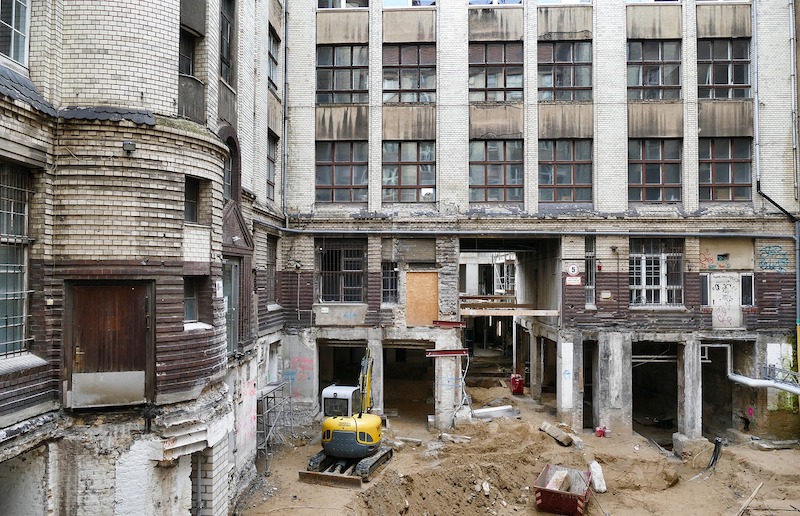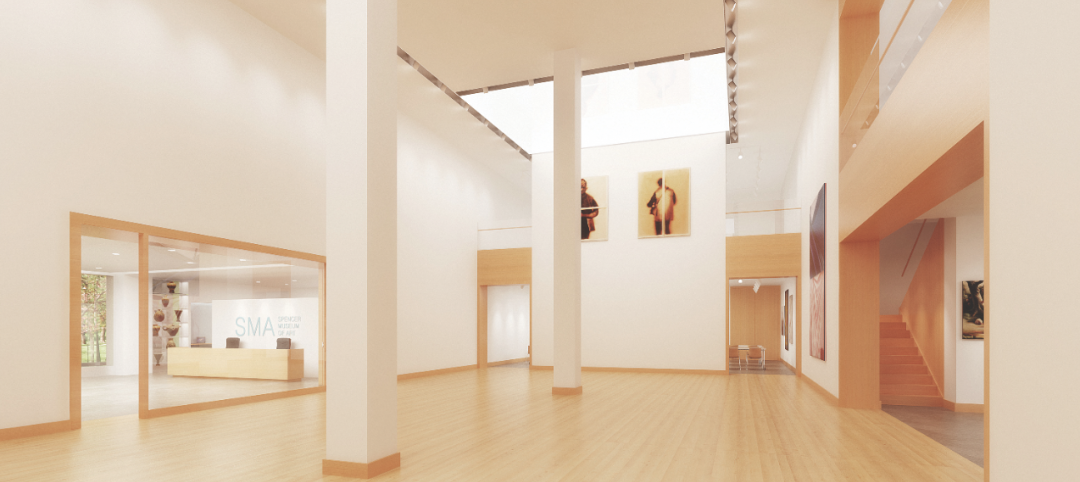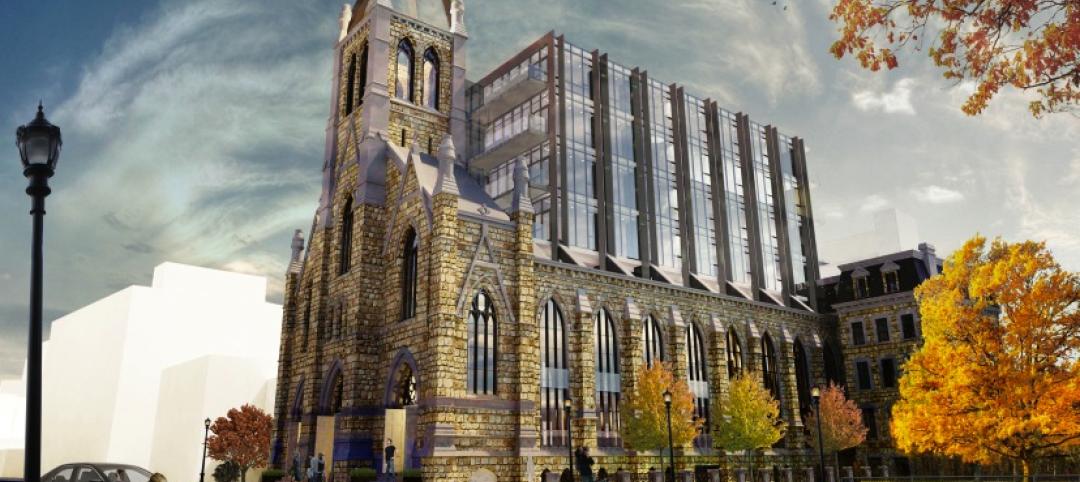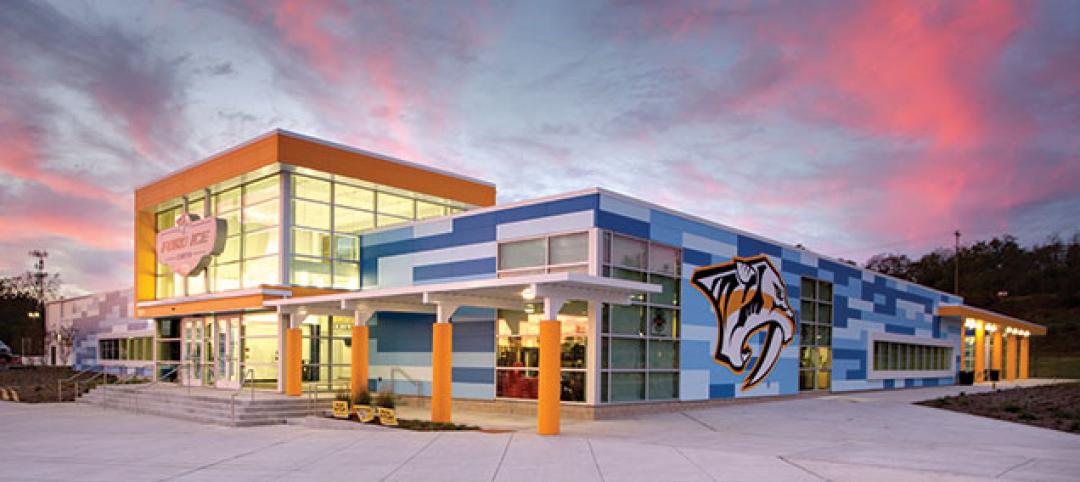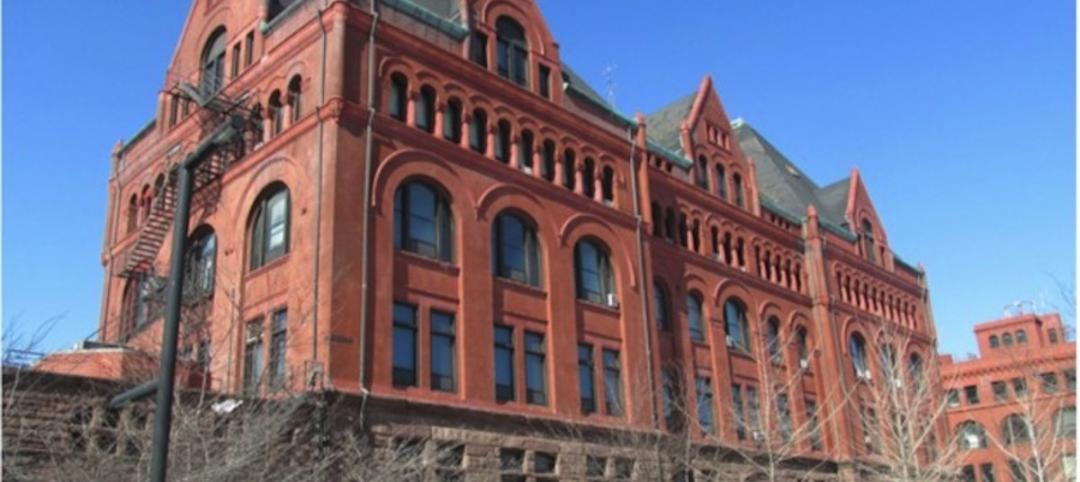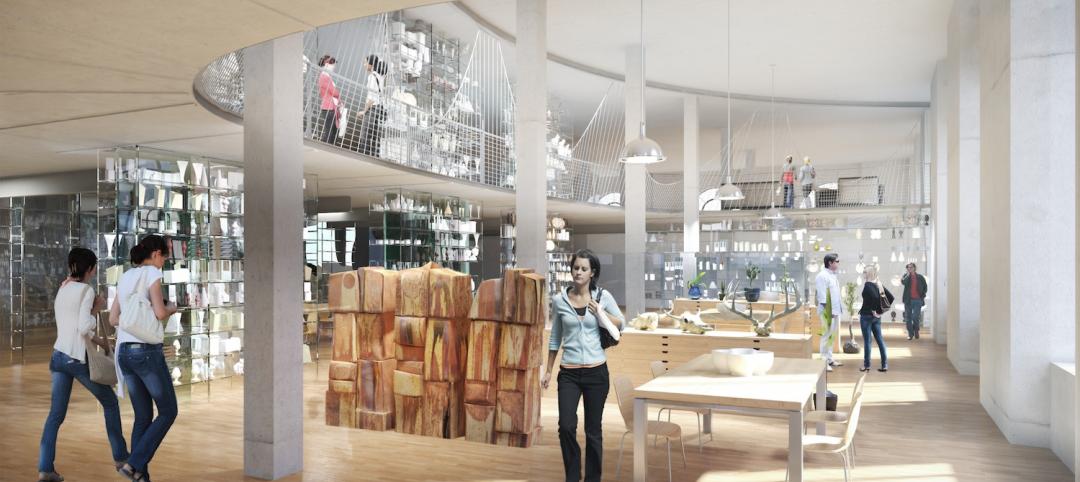For a market that receives little attention or fanfare, the U.S. reconstruction and renovation sector is the lifeblood for many of the nation’s architecture, engineering, and construction firms—large and small. From office fitouts to adaptive reuse to historic preservation to run-of-the-mill renovation work, more than $100 billion in construction spending flows into reconstruction projects each year.
For some perspective on the importance of this sector to the AEC market, we turn to the 2019 Giants 300 Report, BD+C’s annual ranking of the largest AEC firms in the country (BDCnetwork.com/Giants2019). Of the 486 companies that participated in the Giants report this year, 364 (74.9%) reported earning at least some design or construction revenue from reconstruction work in 2018. And more than a quarter (27.0%) of all reporting firms earned at least half of their total 2018 revenue from the reconstruction sector.
Then there are the specialists, like Clune Construction, Consigli Building Group, Hoffmann Architects, and Jensen Hughes, which garner three-quarters or more of their overall revenue from the reconstruction market (40 companies in all, or 8.2% of the Giants 300 reporting firms).
From a community impact perspective, few new construction sectors (outside of healthcare, perhaps) rival the reconstruction market, as evidenced by the 22 winning projects in our 36th annual Reconstruction Awards. When planned and executed properly, redevelopment projects not only save and reenergize dated or landmark structures, they can spark the revivification of entire neighborhoods and districts. Take, for example, the MGM Springfield development in Springfield, Mass. The city used this landmark casino project—it is the first full-service casino in Massachusetts—as a catalyst for a $960-million, 14-acre redevelopment in the heart of downtown. The project involved the restoration or reuse of several historic structures, including the relocation of the First Spiritualist Church and the adaptive reuse of the long-vacant State Armory building.
In Little Rock, Ark., an enterprising AE firm (Cromwell Architects Engineers) purchased the oldest remaining industrial building and turned it into The Paint Factory. The $7.9 million mixed-use redevelopment has been hugely successful since opening in March 2018, sparking some $75 million worth of new construction in the neighborhood.
There are numerous success stories among our 2019 Reconstruction Awards winners—from Linode’s new headquarters in a converted bank building in Philadelphia, to Springfield Technical Community College’s student services center in a military munitions manufacturing plant in Massachusetts. Check out these projects and more featued in the November 2019 issue of BD+C. Enjoy!
Related Stories
Giants 400 | Aug 7, 2015
RECONSTRUCTION AEC GIANTS: Restorations breathe new life into valuable older buildings
AEC Giants discuss opportunities and complications associated with renovation, restoration, and adaptive reuse construction work.
Codes and Standards | Jul 16, 2015
Oregon to spend $300 million for seismic updates on public buildings
A survey found that more than 1,000 Oregon school buildings face a high risk of collapse during earthquakes.
Industrial Facilities | Jun 26, 2015
Google to convert an Alabama coal-burning plant to a data center running on clean energy
The $600 million conversion project will be Google's 14th data center globally, but the first it has committed to in eight years.
University Buildings | May 19, 2015
Renovate or build new: How to resolve the eternal question
With capital budgets strained, renovation may be an increasingly attractive money-saving option for many college and universities.
Multifamily Housing | Apr 22, 2015
Condo developers covet churches for conversions
Former churches, many of which are sitting on prime urban real estate, are being converted into libraries, restaurants, and with greater frequency condominiums.
Sponsored | Cladding and Facade Systems | Mar 24, 2015
Designers turn a struggling mall into a hub of learning and recreation
Architects help Nashville government transform a struggling mall into a new community space.
Religious Facilities | Mar 23, 2015
Is nothing sacred? Seattle church to become a restaurant and ballroom
A Seattle-based real estate developer plans to convert a historic downtown building, which for more than a century has served as a church sanctuary, into a restaurant with ballroom space.
Reconstruction & Renovation | Mar 5, 2015
Chicago's 7 most endangered properties
Preservation Chicago released its annual list of historic buildings that are at risk of being demolished or falling into decay.
| Dec 29, 2014
Startup Solarbox London turns phone booths into quick-charge stations [BD+C's 2014 Great Solutions Report]
About 8,000 of London’s famous red telephone boxes sit unused in warehouses, orphans of the digital age. Two entrepreneurs plan to convert them into charging stations for mobile devices. Their invention was named a 2014 Great Solution by the editors of Building Design+Construction.
| Nov 3, 2014
An ancient former post office in Portland, Ore., provides an even older art college with a new home
About seven years ago, The Pacific Northwest College of Art, the oldest art college in Portland, was evaluating its master plan with an eye towards expanding and upgrading its campus facilities. A board member brought to the attention of the college a nearby 134,000-sf building that had once served as the city’s original post office.


